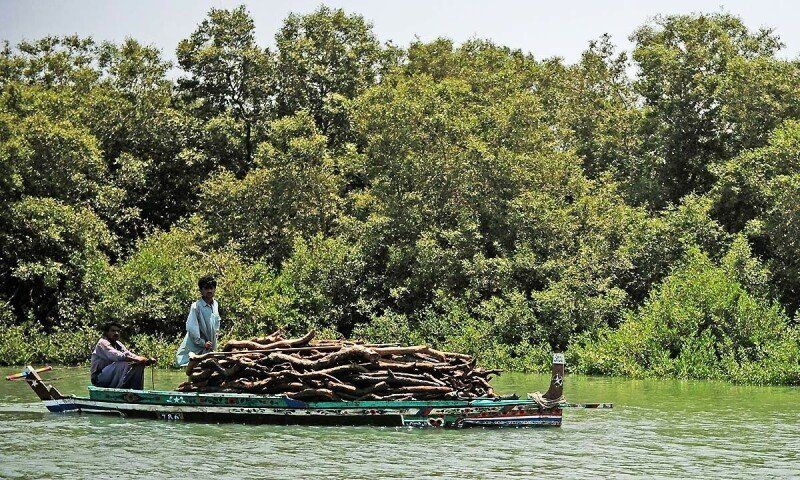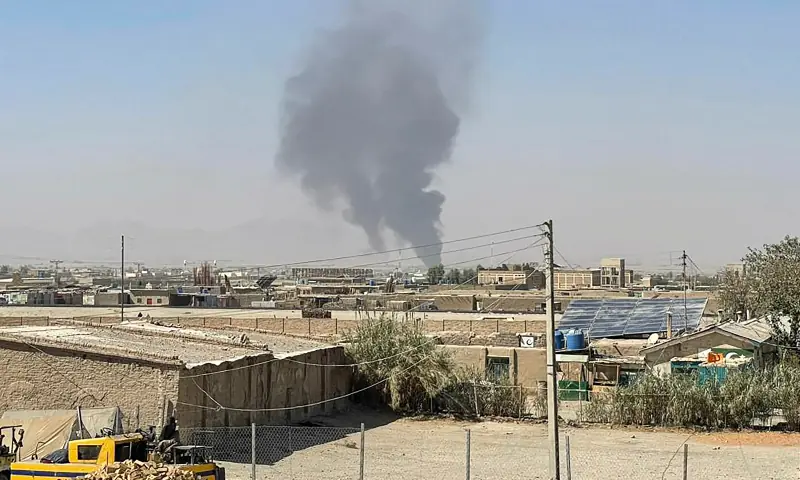Karachi: Despite government efforts, civil society and local communities to increase forest coverage, 11,000 hectares of forests are lost every year throughout the country due to forest fires, climate change and conversion of forest lands into agricultural, commercial and housing schemes.
In a statement published on Friday in relation to International Forest Day observed every year on March 21, the World Fund for Nature-Pakistan (WWF-P) said that conserving forests is not only an environmental imperative but a social and economic need.
This year’s theme – ‘Forests and food’ – emphasizes the critical role of forests in supporting food security, improving local livelihoods and conserving biodiversity.
The organization said that Pakistan is a poor country in the forest, with only five percent of the total area under forests. “Since most of the area falls into arid and semi -arid regions, low precipitation naturally deters the growth of forests.”
On International Forest Day, WWF-P urges government, civil society and local communities to take collective measures to protect forests
“Thousands of hectares of forests are destroyed annually, giving way to various human activities. The growing population, along with poverty and lack of consciousness, has led to illegal and unsustainable logging, the overwhelon of wood for fuel and coal, and increasing agriculture at a small scale that continues to reduce the forest coverage of Pakistan,” the organization said.
In addition, he said that protecting forests in Pakistan requires a multifaceted approach that meets government institutes, conservation organizations and local communities on a platform. “WWF-Pakistan stressed the urgent need to protect and restore the country’s forests, which serve as a lifeguard for biodiversity, support local media and maintain the health of ecosystems.”
The general director of WWF-Pakistan, Hammad Naqi Khan, commented that forests provide a variety of benefits for the environment, wildlife and humans. They regulate climatic conditions and control floods and droughts while they have social and economic benefits.
“We can improve forest coverage and support local economies with better planning, protection and management of forests. Replantation and restoration of degraded or destroyed forests is essential to improve food safety, combat climate change, re -connect wildlife habitats and address problems such as flooding and soil erosion. Conservative forests are, therefore, therefore, not only, not only, not only, not only, not only, not only, not only, not only, not only, not only, not only, not only, not only. An economic and economic need, he emphasized.
He urged government agencies, civil society, companies and local communities to take collective measures to conserve and protect forests.
In July 2024, WWF-Pakistan published a report that identified several places along the Karachi coast, where large mangroves extensions for housing schemes and commercial and industrial projects were clear.
The report also highlighted the areas where mangrove landscapes were still threatened with mass deforestation. To stop the destruction of mangroves along the Karachi coast, the report proposed a strict application of the laws and encouraged the programs of reforestation and natural regeneration.
He warned that if no preventive measures were taken over time, existing mangrove areas could be eliminated or destroyed soon.
Posted in Dawn, on March 22, 2025









